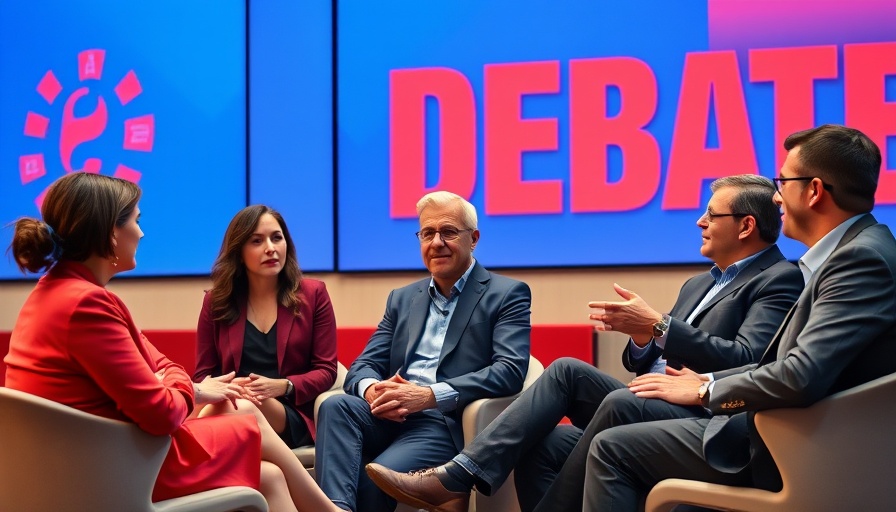
Artificial Intelligence: A Double Edged Sword
The recent debate held in San Francisco raised critical questions about the impact of artificial intelligence (AI) on our understanding of truth and knowledge. Moderated by Bari Weiss, the event featured prominent voices like Perplexity CEO Aravind Srinivas and AI pioneer Fei-Fei Li, who argued that AI could enhance our comprehension of complex issues. On the opposing side were computer scientist Jaron Lanier and author Nicholas Carr, who warned that AI might degrade our ability to engage with and wrestle through the truth.
Why Truth Matters More Than Ever
As we increasingly rely on AI technologies to filter information, the way we arrive at conclusions—historically through discussion and debate—could be fundamentally altered. Humans thrive when challenged with diverse perspectives, and the danger is that if AI continues to dominate our information landscape, it will reflect only the biases we program into it. The question arises: When does knowledge become wisdom? It may be when we engage in rigorous debate rather than passively consume AI-generated content.
Historical Context: The Evolution of Knowledge Discourse
The practice of debate and dialogue has long been a cornerstone of knowledge sharing, tracing back to ancient philosophers who utilized argumentation to explore truth. This historical backdrop serves to highlight just how significant our current transition to AI-generated content is. While the written word and oral traditions empowered previous generations to cultivate understanding, today’s mechanized data output risks simplifying complex narratives into digestible sound bites—foregoing critical thinking in exchange for ease.
The Role of Free Press in AI Discourse
The partnership of The Free Press with the Foundation for Individual Rights and Expression (FIRE) serves as a robust reminder that press freedom is crucial in discussions surrounding technology like AI. As the lines between fact and fabrication blur in the digital world, the press plays an essential role in holding technological advances accountable to ensure they serve humanity rather than hinder it.
What Experts Are Saying: Predictions and Concerns
Both sides of the debate made compelling arguments. Srinivas and Li advocated for AI’s capability to democratize information access, enhancing individuals’ understanding of the world. In contrast, Lanier and Carr highlighted the risk of AI echoing societal biases, which could further entrench misunderstandings rather than resolve them. Future outlooks vary greatly: While some believe AI might lead us toward greater enlightenment, others fear a future fraught with misinformation.
Taking Action: How To Engage with AI Responsibly
For top wage earners in Philadelphia and beyond, the dialogue on AI is not just academic; it's inherently practical. Engage with media critically—question what you consume, seek out diverse perspectives, and contribute to discussions about technology’s implications on society. Understanding the dual nature of AI—both a tool and a potential source of bias—will be critical in shaping a future where truth prevails over convenience.
Final Thoughts: The Future of Knowledge
As we navigate an era of unprecedented technological growth, the essential question remains: Will AI serve to elevate the human experience or diminish our grasp of reality? The stakes are high, and the need for informed, engaged citizens is greater than ever. Remember, the truth must be actively pursued—not passively accepted—if we are to thrive in the age of AI.
 Add Row
Add Row  Add
Add 




Write A Comment